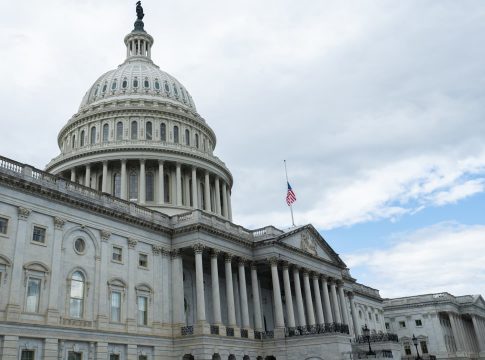Understanding the Potential Impact of a New Tax Bill on Your Wallet
Recent discussions in Congress have put a spotlight on a significant tax cut bill passed by House Republicans, one that could dramatically reshape the nation’s financial landscape—and your personal finances.
What’s in the Bill?
The House’s tax cut legislation, dubbed the "One Big Beautiful Bill Act," proposes around $4 trillion in tax reductions, focusing primarily on the wealthiest households. However, while these tax cuts might sound appealing, they come with a staggering price tag: an estimated $3.1 trillion to $3.8 trillion increase in national debt over the next decade, with interest factored in.
Why Should You Care?
You might be thinking, “How does Congress’s debt affect my everyday life?” The answer lies in interest rates. Rising national debt often leads to increased costs for borrowing. When the government takes on more debt, it can drive up interest rates, which directly affects loans for homes, cars, and credit cards.
Higher Borrowing Costs Ahead
Economists warn that as the U.S. debt burden grows, consumer financing will likely become more expensive. If the debt-to-GDP ratio increases from about 101% to 138%, which some estimates suggest could happen under this bill, 10-year Treasury yields might jump by around 0.6 percentage points. That could push mortgage rates from approximately 7% to almost 7.6%, making homeownership less attainable for many prospective buyers.
- Implication for Consumers: More expensive loans mean higher monthly payments and possibly longer loan periods, affecting how much you can borrow and your financial stability.
The Broader Picture
Interest payments on U.S. debt are now a significant portion of the federal budget—surpassing even defense spending. If this bill passes without amendments, it could create a cycle of higher borrowing costs and lower consumer spending, affecting the economy at every level.
What Can You Do?
- Stay Informed: Keep an eye on the progress of this tax legislation and its potential amendments in the Senate.
- Reassess Your Finances: If you’re planning to buy a home or take out a loan, consider locking in current rates before possible increases.
- Diversify Investments: As bond markets react to rising rates, think about balancing your portfolio to mitigate risks.
Bottom Line
While tax cuts might seem beneficial in theory, the potential consequences of accumulating national debt can ripple through the economy and touch your pocketbook. Staying aware of these shifts can help you make more informed financial decisions as the situation unfolds. It’s a complex issue, but understanding how these legislative changes could affect you is vital for your financial well-being.

Writes about personal finance, side hustles, gadgets, and tech innovation.
Bio: Priya specializes in making complex financial and tech topics easy to digest, with experience in fintech and consumer reviews.

